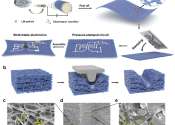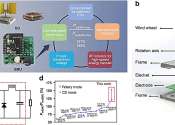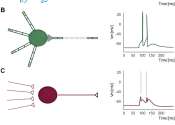Gate-tunable heterojunction tunnel triodes based on 2D metal selenide and 3D silicon
Electronics engineers worldwide are trying to improve the performance of devices, while also lowering their power consumption. Tunnel field-effect transistors (TFETs), an experimental class of transistors with a unique switching ...









